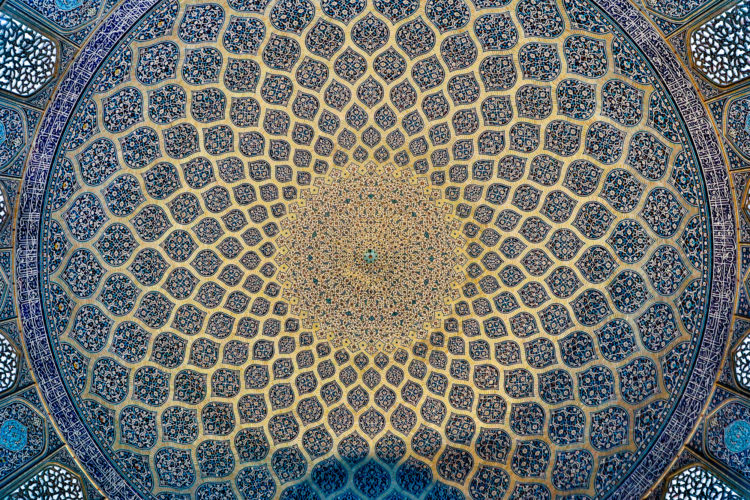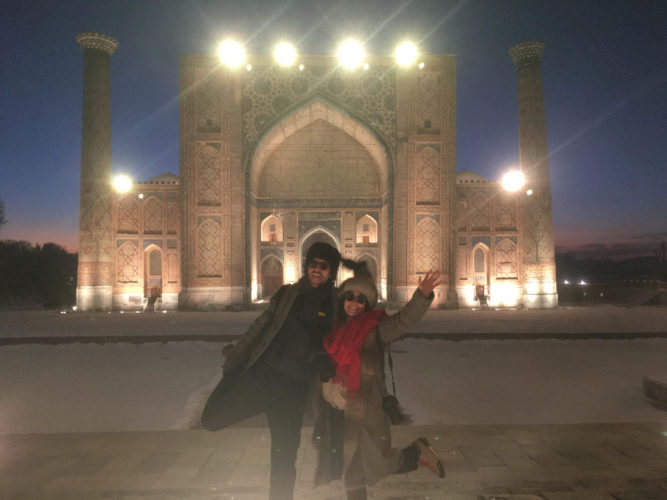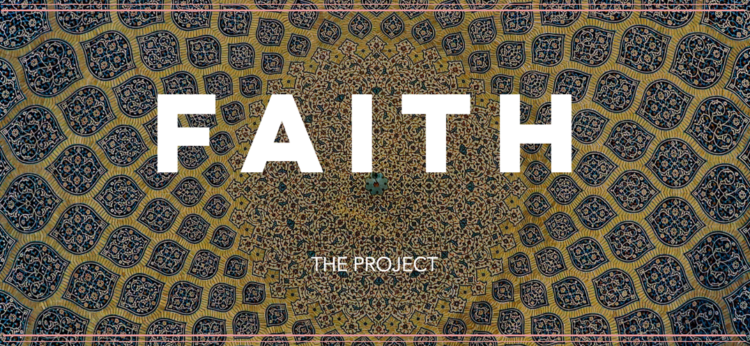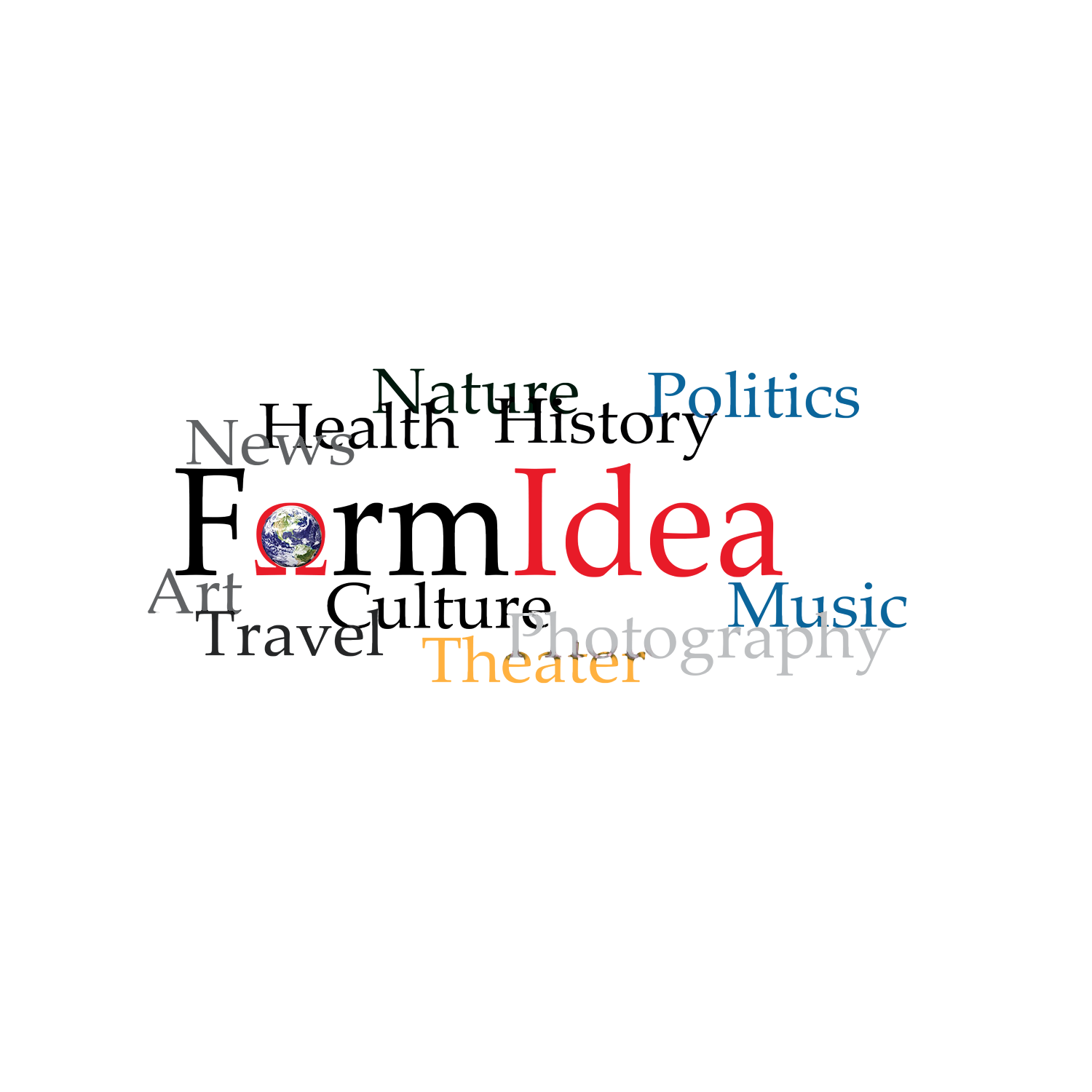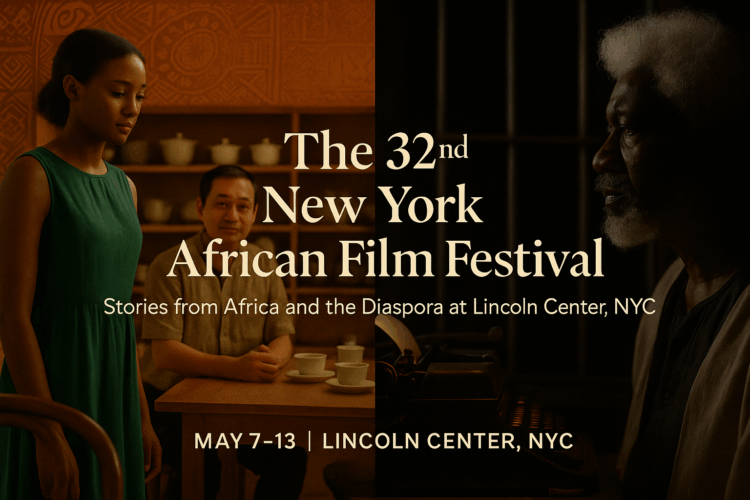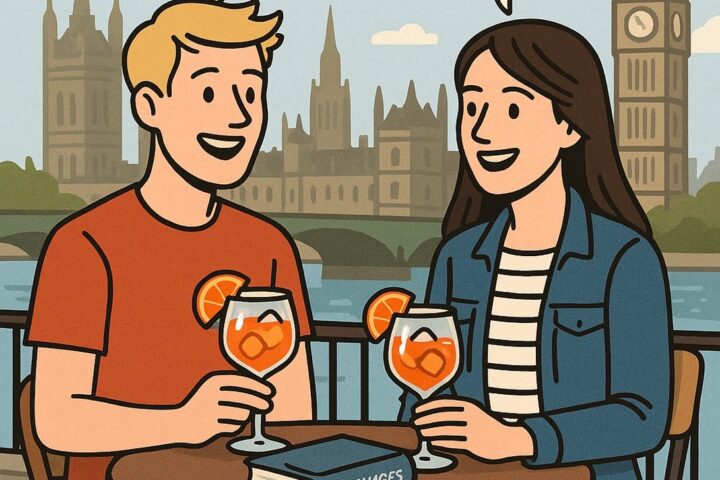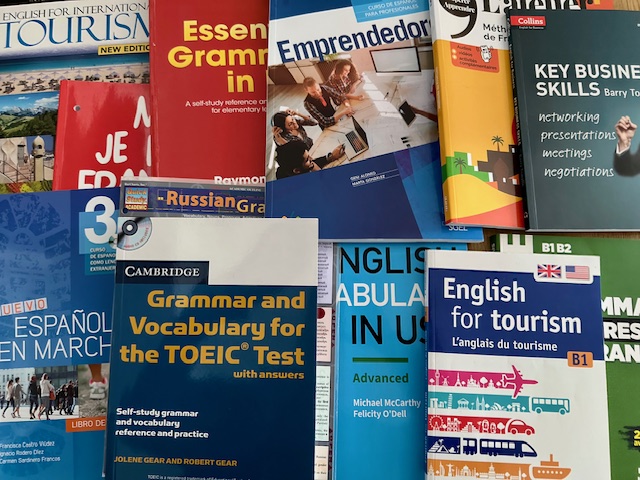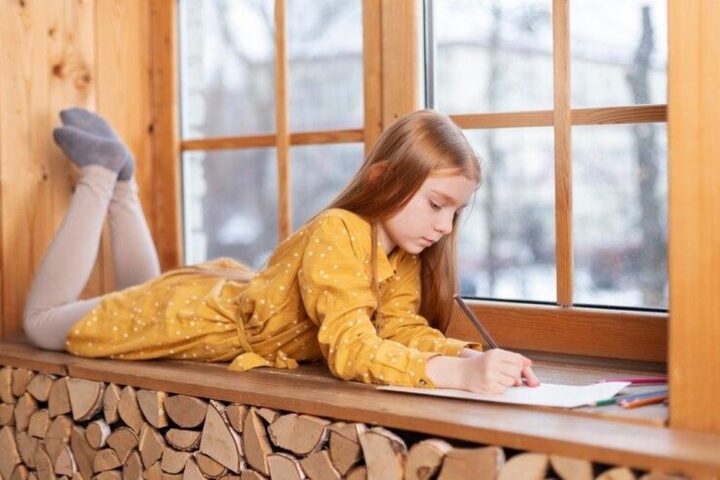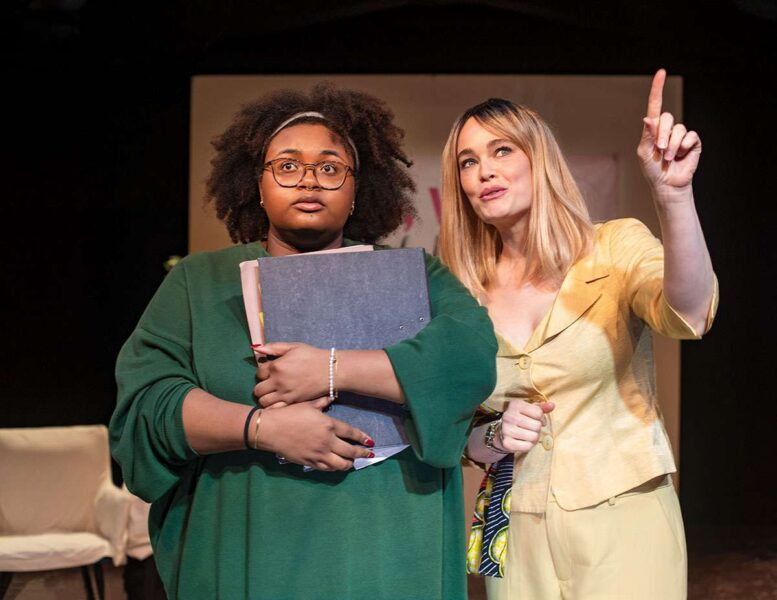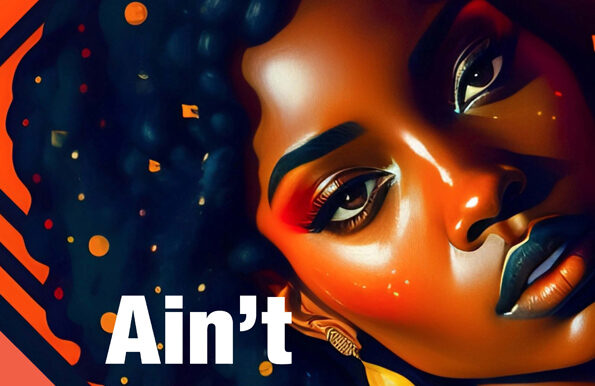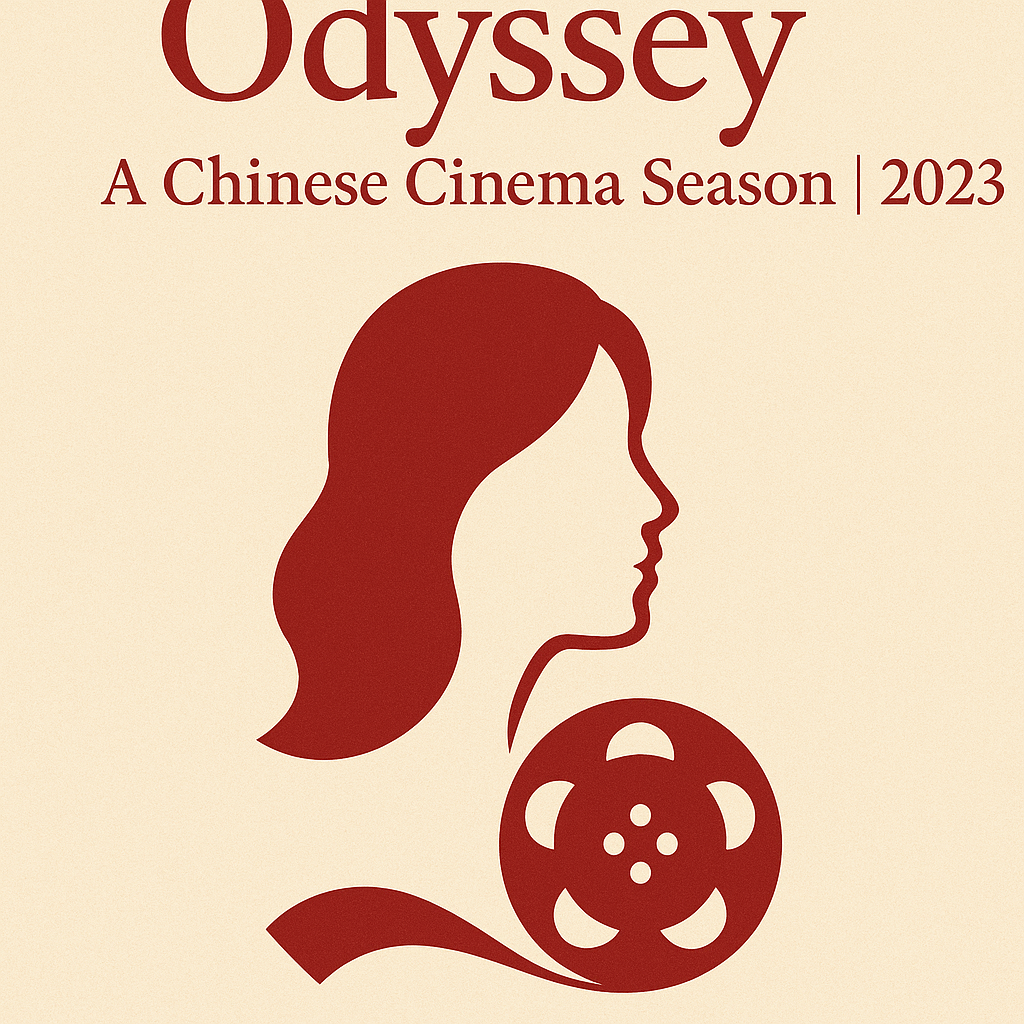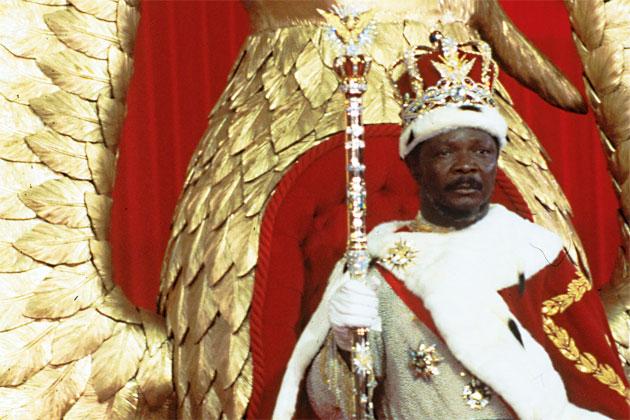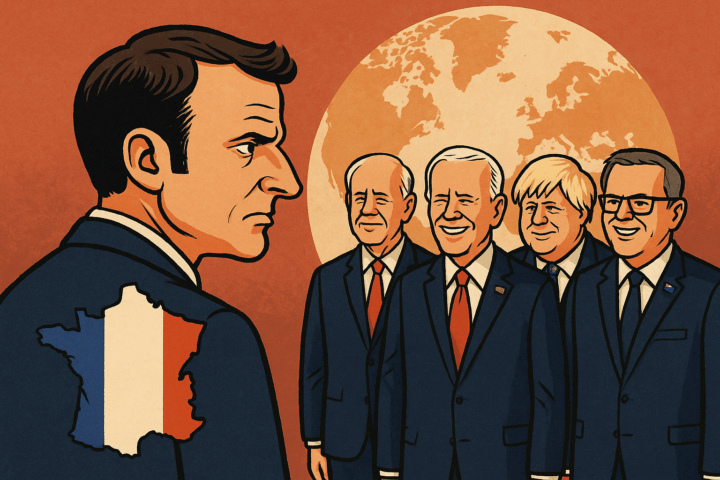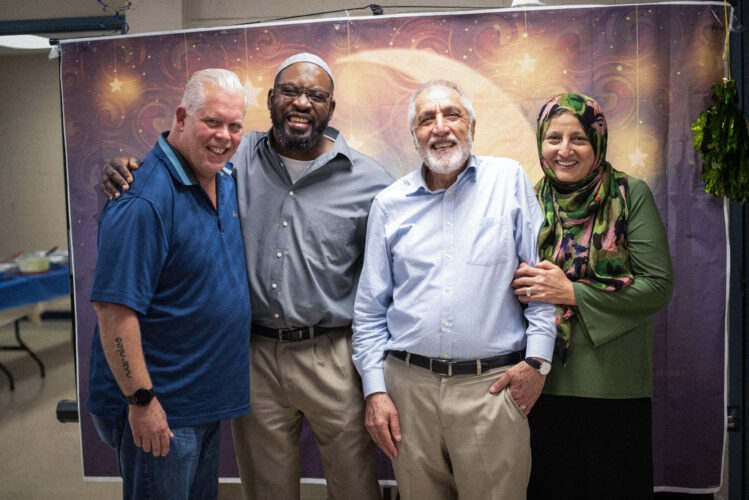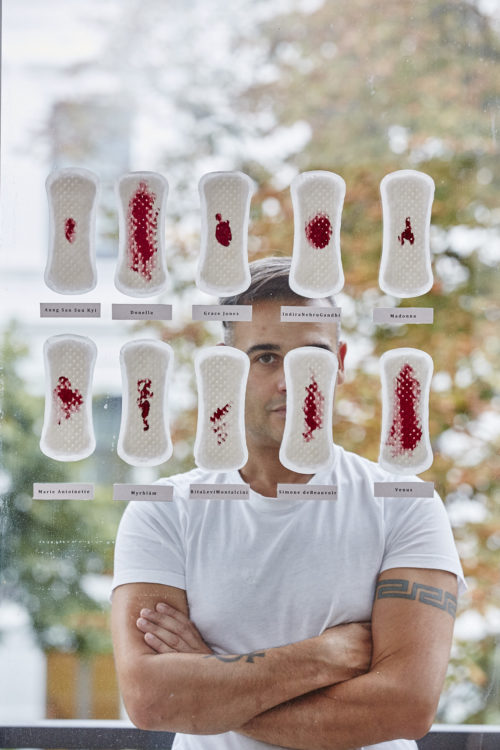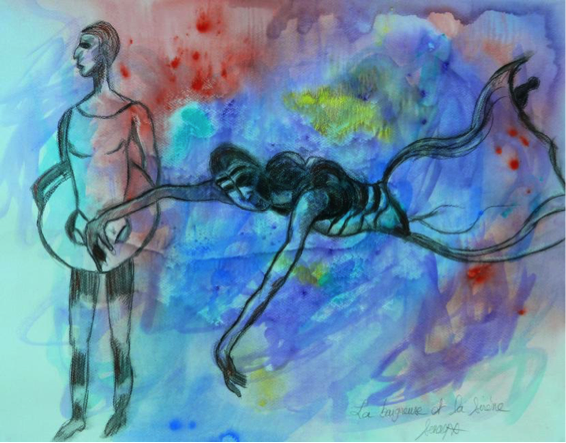Faith The Project: an educational approach to promote peace and religious tolerance
Interview with Fred Daudon & Nabila Laajail
A multimedia approach to countering religious extremism
Can you introduce us to your venture "Faith the Project"?
Fred Daudon: Faith the Project was originally the name given to our documentary project on religions and sacred traditions along the Silk Roads. These roads are, to this day, home to some of the greatest diversities of beliefs and religions, besides being the cradle of many of them. Over the course of the project, we began to feel that our Western world and education system, confronted with indoctrination and fanaticism, may lack pertinent arguments.
Nabila Laajail: We therefore decided to create our organisation Faith the Project, which returns to the themes of our existing documentary work. It also aims to educate people in the facts of different religions using multimedia and to promote mutual respect through intercultural and interfaith dialogue.
How did this idea come to you?
FD: We had this sense of helplessness regarding the terrorist attacks taking place in many countries around the world and we felt the need to take action, to thwart terrorists by means of education. We believe that it is more difficult to convince a young person to join a terrorist group if he or she already has the true facts about countries and cultures they may attack.
NL: Moreover, as we witness the terrible persecution of Yezidis, Rohingyas, Middle Eastern Christians and other minorities we feel a real urgency to make people aware of their existence, their rituals, their history before they disappear.
How many people work in your team? Are you looking for volunteers?
FD: I dedicate all my energy and time to this project. I have put aside many photographic projects in order to devote myself entirely to the organisation. We are currently the only two people officially on the team but we are very well supported by volunteers. We work with researchers and academics from around the world to follow through with our commitment, not to mention friends who volunteer for tasks in our project. Certainly we could do with permanent volunteers to deal with communications, media, website, translations, calls for tender, etc. There is no lack of jobs to do!
NL: As for me, I dedicate all my free time, evenings and holidays included. When I returned home to Corsica, I did not even notice the sea!
How did you fund your first trips?
(in chorus) With our own money!
FD: We spent a fairly large sum, between € 15,000 - € 20,000 for 6 months up front, but this expense allowed us to be masters of our own destiny and not feel under any pressure. The stories told to us by the people we have met render the sums we invested appear trifling.
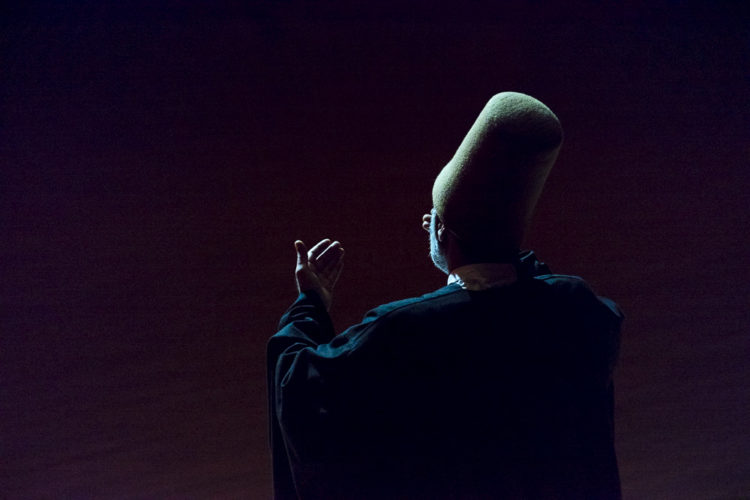 A semazen-bashi (sheikh of the whirling dervishs) offering a prayer - Sufi Mevlevi brotherhood, Konya, Turkey, 2016
A semazen-bashi (sheikh of the whirling dervishs) offering a prayer - Sufi Mevlevi brotherhood, Konya, Turkey, 2016
What struck you the most during your first trip to Turkey?
FD: I felt a deep uneasiness despite the exceptional welcome I received. I can confirm that the Turks deserve their reputation of being excellent hosts! Sadly, I have in mind the stranglehold of Diyanet on all religion, with a rampant Islamization of the Turkish public sphere, despite the Republic being secular on paper. One only has to look at the huge increase of Diyanet’s budget during Erdogan’s years to understand this phenomenon. In Mardin, I met Kurds who were exhausted by the civil war, I met Alevis, Christians and Jews; all of them feel insecure. I managed to seize one of the last opportunities to take pictures in this amazing country; for the last year and a half it has been complicated to report and to carry out research without trouble.
NL: Unfortunately I could only stay one week in Istanbul due to professional commitments but the tension was palpable; in fact, the Turks fear gatherings. One evening, we were looking for a Sufi brotherhood Dervish tariqat ceremony. After having struggled to find the entrance to the hall, we had to show our ID, and explain the reason we were there, we were asked about our links with the media and politicians. A police state exists and fear is evident in all places of worship. Cosmopolitan Istanbul, the jewel of the Bosphorus, now lives in constant fear of Big Brother’s monitoring and of terrorist attacks.
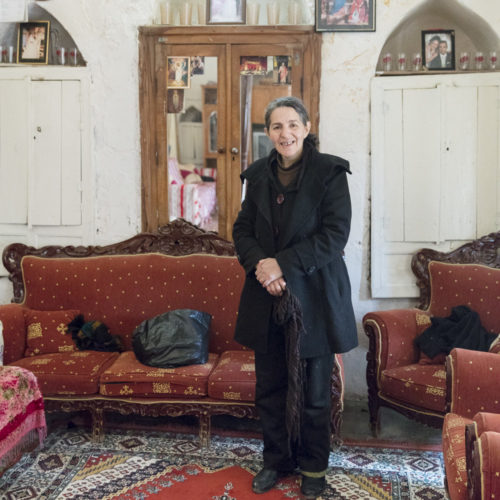 Maryam at home, one of the last representatives of the Syriac Church, Mardin, Turkey, 2016
Maryam at home, one of the last representatives of the Syriac Church, Mardin, Turkey, 2016
And on the Silk Road?
FD: Human generosity. We met some fabulous people who shared with us their family stories, their meals, their vernacular art; they opened their doors and their hearts to us. The exoticism of the Orient was in many ways fantasized by Westerners, especially in the nineteenth century. There have been great philosophers, scientists, architects and artists who are no longer being studied enough in our schools but have strongly influenced us. The great schools of Chinese thought, the teaching of various Sufi masters in the Persian and Ottoman spheres, have not yet sufficiently infused our pre-university education programmes. It is time for us to open ourselves to new horizons. Our European way of life has borne fruit, it seems to me, yet nevertheless it is regrettable to witness the rampant westernization of China, Iran and even of remote Pamir.
NL: The road we travelled from the Bosphorus Strait to the centre of the Middle Kingdom was a voyage of initiation. Faces, smiles and exchanges will remain forever imprinted in our memory. The benevolence and wisdom of the people we encountered have overwhelmed us.
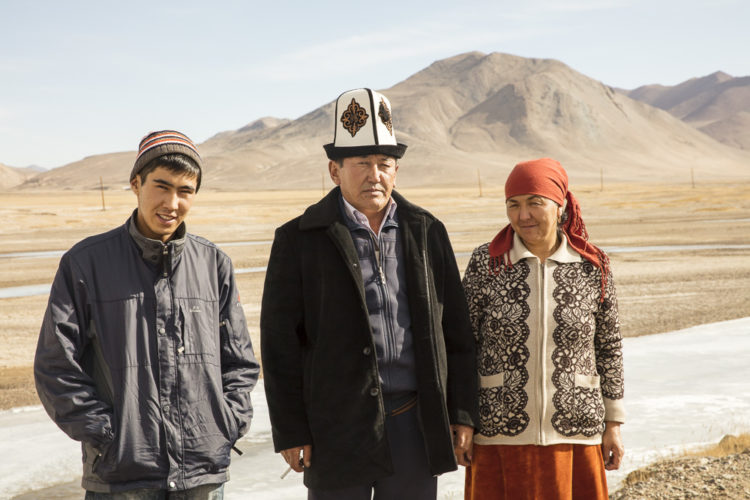 Picture of a Kirghiz family. Mohammed with his aunt and uncle who accompany him to his wedding in Murgab, on the "Pamir Highway", Autonomous Region of Upper Badakhshan, Tajikistan, 2016
Picture of a Kirghiz family. Mohammed with his aunt and uncle who accompany him to his wedding in Murgab, on the "Pamir Highway", Autonomous Region of Upper Badakhshan, Tajikistan, 2016
How can we put a stop to religious fanaticism?
FD: Can we stop fanaticism? Can we stop wars and crimes? Religion, economy, and power are all too often pretexts. As long as there are human beings, there will be some who are mad and deluded. Our role is to make sure that there are as few of them as possible and to prevent them from taking action. If the Ten Commandments are so simple that a 5-year-old can grasp their meaning, why could not a young 18-year-old adult understand and apply them to their life? In my view, education does not fully prepare young people to adapt to our environment. In a world where the pace of change is accelerating, it is our duty to understand each other, to get to know each other and to tolerate our differences. That is the message we are trying to get across.
NL: We cannot put an end to human stupidity, but we can fight against ignorance by understanding its causes. We must win back these young people who have lost their way. As Nelson Mandela said, “Education is the most powerful weapon which you can use to change the world”.
We must promote more culture and develop critical analysis in education in order to give a frame of reference to young people and to society in general.
FD: One must ask the question: do we want to live in a state of permanent emergency, spending hundreds of billions of euros in weapons to stop this fanaticism? The priority must be to provide educational programs, free education in areas where terrorists recruit the most. I think this second solution would be far more fruitful and much less expensive in the long run.
We are witnessing today an Islamic radicalization in many countries, some of which were known for being relatively tolerant to other faiths. Do you think your project resonates with these countries?
FD: There are several interesting points in this question.
Firstly let’s consider radicalization. Is it Islam that has become radicalized or is it men? Wahhabism dates back to the 18th century, the Muslim Brotherhood to the first decades of the 20th century, so fundamentalist schools are not new phenomena. In every society there are extremist movements and religions are no exception.
History is filled with periods favourable to fanaticism, nationalism, and communitarianism, and I have a sense that this is where we are now. This concerns not only some Muslims but encompasses our globalized world. We must condemn those who use the sacred texts to call for murder, hatred and discrimination.
We are witnessing the manipulation of minorities. I was with the priest of the Anglican Church in Lahore two days before the bloody attack on his community during Easter 2016. He had told me that his community has a very peaceful relationship with its Muslim neighbours. Everywhere along the Silk Road, whenever we have posed this question to religious minorities, the answer has been the same: our relations with our neighbours are excellent. A small number of fanatics, arriving from a different region or country, stir up unrest.
What concerns me most of all is the breeding ground for these terrorists. In Pakistan, Indonesia and Morocco, who is offering free education and aid to families in rural areas? Unfortunately, the answer is the most radical schools of thought. We must remember that at the inception of the Muslim Brotherhood in Egypt, the poor and working classes served as recruits.
In order for our work not to remain as just abstract theory, we need to be physically present in the problem areas. It is also vital to connect with the diaspora of the affected countries.
NL: I would like to add, to complement Fred's remarks, that we are not the only ones working to this end and I would love to see greater co-ordination between all of us who are working towards a world where we live together in harmony; it would be wonderful if associations, politicians and citizens could join forces.
But one needs to be mindful of how the most dangerous sort of fanaticism is backed by petrodollars, rallying the weakest in our societies who are desperately looking for a better future. We hope to visit North Africa, the Middle East and Sub-Saharan Africa to learn more about these countries.
And Israel too?
FD: I dream of seeing Israel once again become a Holy Land and not a land of hate. If religions claim to carry a universal message, they should open their doors to everyone; that is especially true for Jerusalem, which should be a free city belonging to all. I made a first trip there in 2015 and we will try to get our message across when we visit next time.
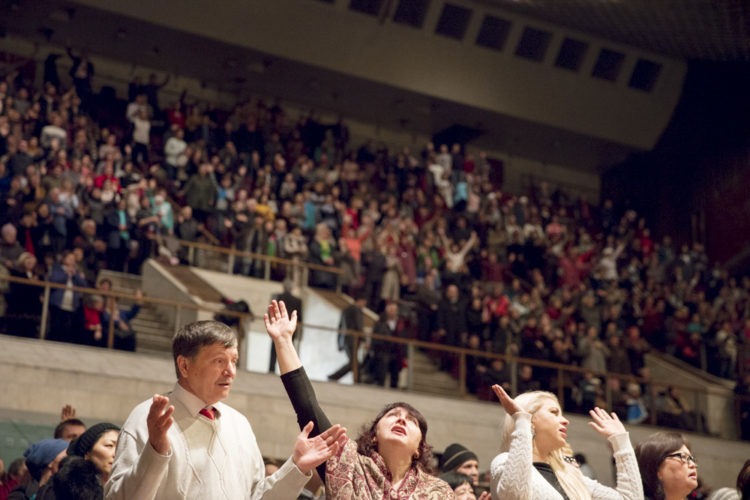 A mass celebrating Christmas organized by the Church of Jesus Christ in the Sport Arena, Bishkek, Kyrgyzstan, 2016
A mass celebrating Christmas organized by the Church of Jesus Christ in the Sport Arena, Bishkek, Kyrgyzstan, 2016
Is the expression "religious tolerance" an oxymoron?
FD: We could call it a euphemism. Tolerance is inscribed in many of the sacred texts. The three great monotheistic religions of the Western world are derived from the same historical beginnings; this is already a reason for reconciliation! Each has tried to shed new light rather than start with a clean slate. We must not, however, misunderstand or disregard the lessons of history; civil wars in the name of religion were and still are all too frequent. One way to view it is man’s will to dominate. Tolerance comes from education, a fight against ignorance.
The words of Djalal ad-Din Rumi, a brilliant philosopher and founder of the Supreme Tariqat of the Mevlevi, are a truly inspiring example of tolerance.
“Not Christian or Jew or Muslim, not Hindu, Buddhist, Sufi, or Zen. Not any religion or cultural system. I am not from the east or the west, not out of the ocean or up from the ground, not natural or ethereal, not composed of elements at all. I do not exist, am not an entity in this world or the next, did not descend from Adam and Eve or any origin story. My place is the placeless, a trace of the traceless. Neither body nor soul. I belong to the beloved, have seen the two worlds as one and that one call to and know, first, last, outer, inner, only that breath breathing human being.”
Are there religious communities that support your project?
FD: Religious organisations that directly support our project? None at all! Besides, this is not what we wish for. We are a secular charity so it is best to avoid being associated with any particular religion or religions. It is important to guarantee our independence and clear objectivity but this does not prevent us, quite the contrary in fact, from working with religious representatives and different organisations or charities close to a religious community.
NL: We felt compelled to seek to understand the essence of religion after witnessing so many conflicts and terrorist attacks. We started this charity with our own funds to ensure our impartiality. Various religious communities have listened to us, for instance Muslims who want to put a stop to the confusion associating their religion with terrorism along with Buddhists and Christians who remind us of the simple message "love your neighbour as yourself”.
I remember clearly the Mother Superior of the Orthodox monastery in Tashkent who was reluctant to meet us but after three days finally granted us a little of her time. We parted tearfully as she grasped our hands and said, "It's important what you do, you must continue, it is truly necessary.”
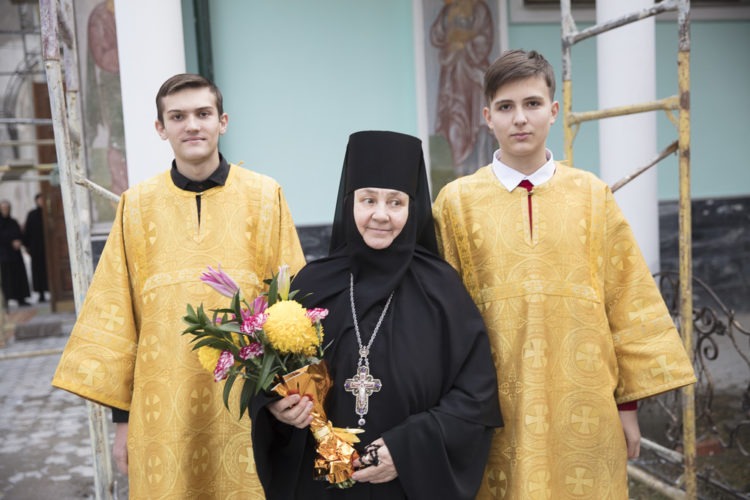 The Mother Superior of the Women’s Monastery of St. Nicholas, part of the Russian Orthodox Church, Tashkent, Uzbekistan, 2016
The Mother Superior of the Women’s Monastery of St. Nicholas, part of the Russian Orthodox Church, Tashkent, Uzbekistan, 2016
Of all the photos taken during your travels, which is your favourite?
FD: It's a difficult question, very difficult, especially when you have thousands of images! Aesthetically I like the one of the Buddhist Chan monk that I took during morning prayer in the Shaolin temple. From the Monk’s gaze in the candlelight emanates that faith which dwells in each of us.
NL: All of them! It’s like a parchment that must be unfolded in order to appreciate the mystery. We invite people to judge for themselves as each picture reflects a special moment, a person, a different story. I could not possibly choose just one!
FD: She lies! And here’s the proof: we managed to select a dozen photos to use for this interview! (Laughter)
Can you share an anecdote that could give us hope for our collective future?
FD: Perhaps the story of our entire journey - people welcomed us regardless of our religion or beliefs.
NL: At each stopover, our encounters were rich and overwhelming. We were touched beyond measure by the generosity, wisdom and serenity of all the people we met.
Despite political and economic repression, many continue to fight for their culture and their way of life. When I arrived in a little synagogue in Samarkand, the rabbi looked at me steadily and said "yàhùdiya", meaning “Jew”. When I told him that I was a Muslim of Moroccan-French origins, he repeated "yàhùdiya" and we laughed together. After all, we are family.
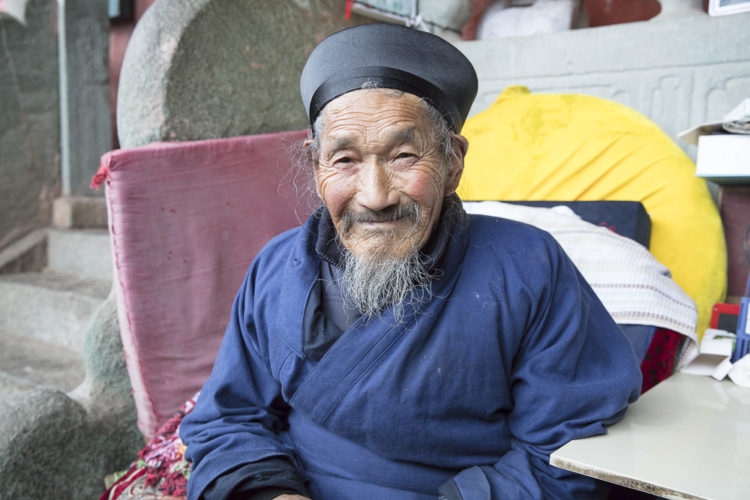 A Taoist hermit-master living in the mountain range, Wudang, China, 2017
A Taoist hermit-master living in the mountain range, Wudang, China, 2017
Fred, why did you choose Lisbon as your place of residence?
FD: For its open-mindedness and its light! Here in Portugal, one of the most Catholic countries in Europe, the Aga Khan was able to establish his “Holy See” - an exemplary model of tolerance!
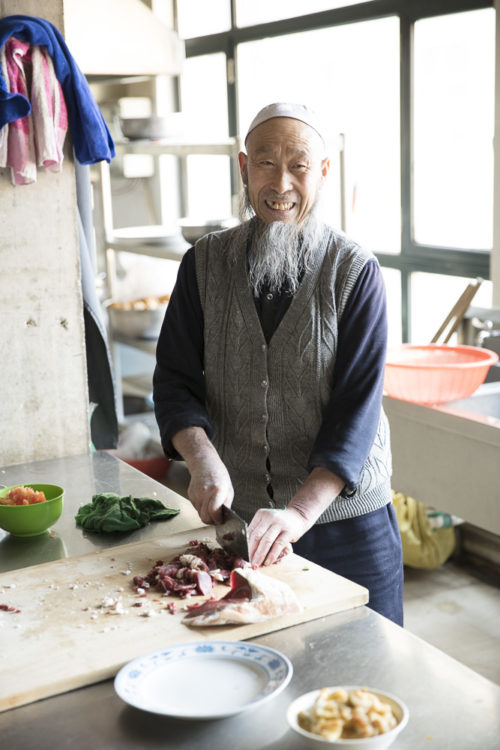 Portrait of a cook in a Koranic school, Xining, China, 2017
Portrait of a cook in a Koranic school, Xining, China, 2017
What do you need at this point in time to bring your project to fruition?
FD: Volunteers offering help for sure as much more can be achieved even without money. We launched a crowdfunding campaign (www.gofundme.com/faiththeproject) to raise awareness for our cause and to fund an exhibition project and publication of a book. It goes without saying that the more funds we have, the more we will be able to achieve!
What is the best way to contact you?
NL: We are on Facebook, Instagram, Twitter and Vimeo under the same account (@faiththeproject). You can also call us on our mobile phone or send us an email at info.faiththeproject@gmail.com
Thank you very much Pierre and Annie for this interview and the wonderful work you do with FΩRMIdea | form-idea.com
Interviewed by Annie Solomons and Pierre Scordia.FΩRMIdea London, 7th October 2017.
